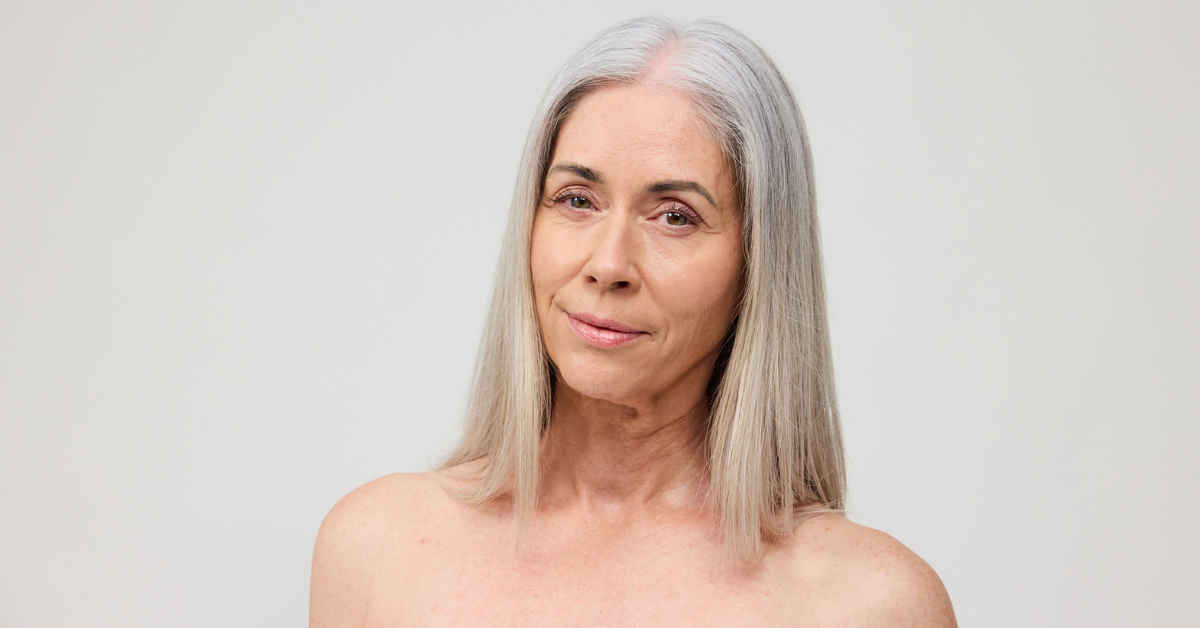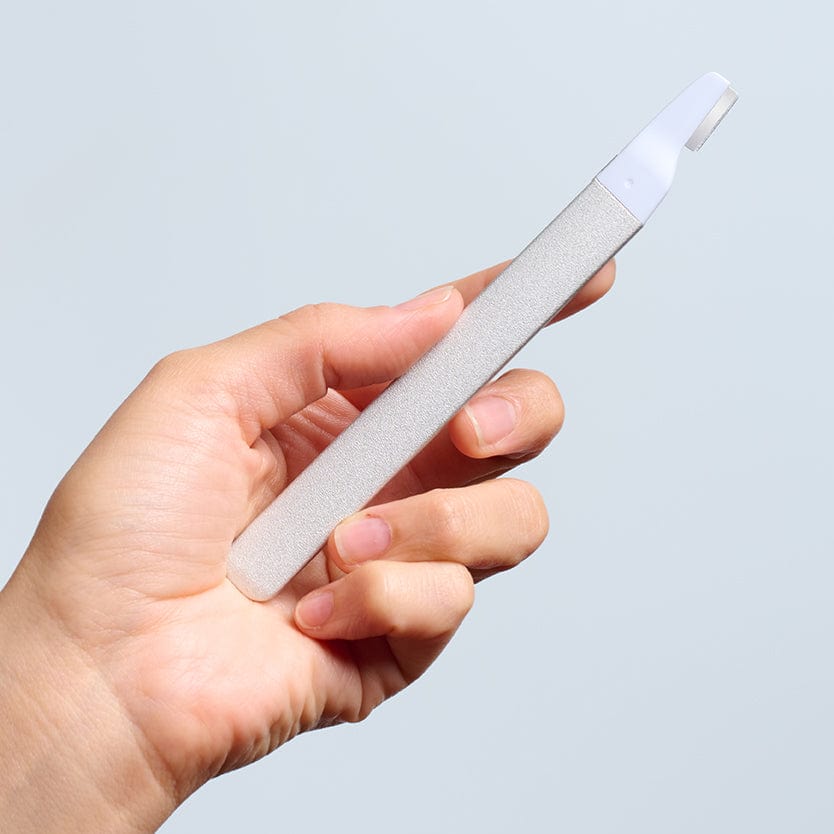The Hormone-Skin Connection
Written by Kerry Benjamin

You’re not imagining it—your skin is reacting to more than your products.
If your skin has felt off lately—drier, duller, breaking out, more reactive—it’s not just your moisturizer failing you. It’s your hormones.
As women, we ride a hormonal rollercoaster that doesn’t let up after puberty. From perimenopause to menopause (and everything in between), hormonal shifts dramatically affect the way our skin looks, feels, and functions. And unless you’re working with your hormones, not against them, your skincare might not be doing what you think it is.
Let’s break down what each hormone does to your skin, what to watch for, and how to respond with smarter skincare.
Estrogen — The Collagen Keeper
What it does: Estrogen is your skin’s best friend. It keeps things hydrated, firm, and elastic by stimulating collagen production and maintaining the skin’s moisture barrier.
When it drops:
- Skin becomes thinner and more fragile
- Fine lines and wrinkles deepen
- Hydration vanishes, no matter how rich your moisturizer is
- Crepey texture appears—on your face and your body
What to watch for:
- Dry, dull skin that just won’t bounce back
- Wrinkles that deepen seemingly overnight
- Skin that feels more fragile or papery
What helps:
- Exfoliate first to remove the dead skin barrier blocking absorption:
- Dermaplaning Tool 1x/week
- Multi Acid TCA Face Peel 4–5x/week
- Then hydrate in layers:
- HA Hydrating Serum to draw in moisture
- Microbiome Rescue Moisturizer to restore ceramides
- Shiunko Face Oil to lock it all in and prevent TEWL (transepidermal water loss)
Personal tip: If you’re open to it, talk to your doctor about estrogen cream. Once I started using it, I noticed a huge difference in how hydrated and firm my skin felt, especially in areas that were starting to feel thin and crepey. My skin holds moisture better now, and it feels like I’m losing collagen at a slower pace.
Progesterone — The Sleep + Skin Regulator
What it does: Progesterone is your skin’s nighttime support system. It promotes deep sleep and helps regulate oil production and inflammation.
When it drops:
- Sleep gets disrupted, especially with those 3 a.m. wakeups
- Skin becomes more inflamed, puffy, and harder to calm
- Your mood tanks—which only adds more stress (hello, cortisol)
What to watch for:
- Dull, unrefreshed skin
- Puffiness under the eyes
- Increased sensitivity or redness
What helps:
- Ice Roller in the morning to depuff and reset skin
- Give your skin recovery nights (no actives) after poor sleep
- Layer your barrier: moisturizer + oil = repair mode
Personal tip: And if you’re open to it, talk to your doctor—progesterone made a huge difference in my sleep, which instantly helped my skin. It also helped my mood. Before starting, I was so irritable from lack of sleep that it triggered more stress—and more cortisol. Which brings us to...
Cortisol — The Stress Skin Saboteur
What it does: Cortisol is your body’s stress hormone. And unfortunately, your skin feels the effects just as much as your nervous system.
When it’s elevated:
- Skin heals slower and looks more dull
- Inflammation increases
- Chronic stress flares up existing skin conditions
What to watch for:
- Red, irritated patches
- Uneven tone that won’t even out
- Skin that looks “tired” no matter how many serums you use
Personal tip: Cortisol also triggers eczema for me. If I’ve had a stressful week or haven’t slept well, I’ll see flare-ups almost immediately. That’s why managing stress isn’t optional—it shows up in your skin whether you like it or not.
What helps:
- Ice Roller to soothe inflammation and stimulate circulation
- Keep your routine simple when stressed—think hydration and calm
- Prioritize sleep, magnesium, and even meditation to help lower cortisol from the inside out
Testosterone + Androgens — The Acne Agitators
What they do: These hormones regulate oil production—but when they fluctuate, things can go sideways.
When they spike:
- Adult acne pops up along the jawline, chin, and neck
- You may be dry and oily at the same time
- Pores become more visible and prone to clogging
What to watch for:
- Deep, stubborn breakouts
- New acne despite dry patches
- Shine in areas you’ve never had before
What helps:
- Multi Acid TCA Face Peel to keep pores clear and cell turnover high
- High Frequency Wand to calm inflammation and kill bacteria
- Hydrate even if you’re breaking out—starving your skin of moisture will just make things worse
Thyroid & Insulin — The Under-the-Radar Disruptors
What they do: Your thyroid and insulin levels affect skin tone, texture, and inflammation—but often in subtler ways.
When they’re imbalanced:
- Thyroid issues can cause dry, dull, or thinning skin
- Insulin resistance can lead to inflammation, acne, and even pigmentation changes
What to watch for:
- Skin that’s suddenly flaky or fragile
- Worsening melasma or uneven tone
- Chronic inflammation that doesn't respond to topicals
What helps:
- Skincare can support, but if changes are sudden or extreme, get lab work done
- Treating the root cause helps your skincare work better
You Don’t Have to Be a Hormone Expert—But Understanding This Changes Everything
Your skincare doesn’t exist in a vacuum. If your hormones are shifting, your skin will shift too. But once you understand what’s happening under the surface, you can adjust your approach and actually see results again.
You don’t need to overhaul everything. You just need to start working with your body—not fighting it.
Ready to adjust your skincare to where your skin is now? Take our quiz to find your personalized Stacked method.
About the Author

Kerry Benjamin, a licensed aesthetician, has over 14 years of experience. Kerry is the driving force behind StackedSkincare. As the company's CEO, Kerry has dedicated her career to revolutionizing skincare. Her innovative approach combines peels, serums, and specialized tools to effectively address a wide range of skin concerns. CA LE license number Z98459.

